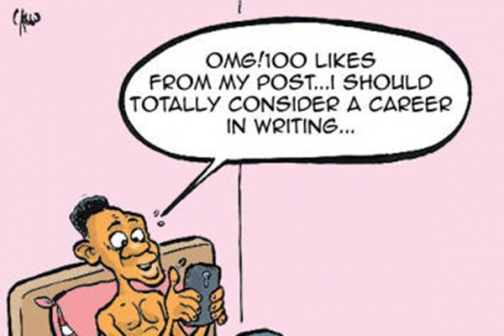
Social media has helped develop literature as many writers glean writing ideas from different sources and learn from established authors whose work is sometimes displayed and discussed in these spaces.
Conversely, social media is also quickly breeding a group I would refer to as phonies, who totally believe they are writers of note even though they have little or nothing to show. This group has choice words for anyone who thinks they are not writers. Such acts are nothing but delusion and any young writer who desires to grow and make a mark is better off deploying a different strategy.